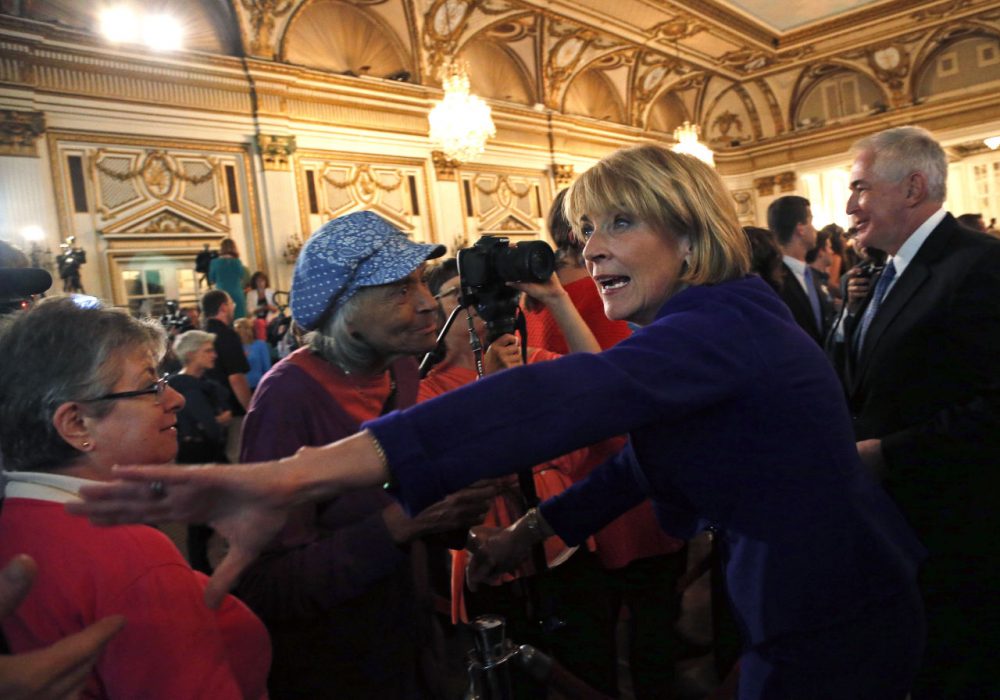Advertisement
Map Analysis: Coakley Won Where It Matters

Martha Coakley's overall margin of victory in Tuesday's Democratic gubernatorial primary, far narrower than expected, has worried some observers. But a deeper dive into the returns show Coakley won because she posted huge numbers in urban areas and lower-income communities — the same spots she will need to win in a November matchup against Charlie Baker, the Republican nominee for governor.
Coakley, the current state attorney general, outpaced Steve Grossman, the current state treasurer, by 6 points overall. She collected 42 percent of the primary vote, compared to Grossman’s 36 percent and Don Berwick’s 21 percent. The primary returns show a pronounced break along class lines. Coakley and Grossman ran a tight contest in wealthier suburban communities across Massachusetts. But Coakley notched large victories in densely populated urban communities, and her strength in urban communities paced her to victory on Tuesday.
Coakley took Boston by 14 percentage points. She won Springfield by 21, Brockton by 14, Worcester by 13, and New Bedford by 16. She overwhelmed Grossman and Berwick in Lawrence and Chelsea, posting 29-point margins in each city.
The large margins Coakley posted in these urban areas speak to a larger fault line in the Democratic primary vote.
Median household income in Massachusetts (the income earned by a typical family in the state) is roughly $66,700 according the 2012 American Community Survey. A disproportionate share of lower income residents are concentrated in the state’s urban centers, while the suburbs are home to larger numbers of residents whose incomes exceed the state median.
[asset url="2014/0911_primary-demographics"]
Berwick took 22 percent of the vote in wealthier communities, and 20 percent in less-wealthy cities and towns. He won a smaller group of very wealthy suburbs like Concord, Lincoln and Carlisle, and also liberal western communities like Great Barrington and Northampton.
Coakley shouldn't have to worry about having the wealthier suburbs Grossman and Berwick won, like Newton, Brookline, Lexington and Wayland, come home to her in November; they’ve been reliably Democratic communities for years. It’s more notable that Coakley made her strongest showings in the cities — the kinds of communities where she needs to run up the score in November.
In 2010, when Gov. Deval Patrick topped Baker by 6 points overall, he beat Baker by 20 percentage points in cities and towns that fall below the state median income. Patrick’s margins in poorer cities overwhelmed the 3-point edge Baker enjoyed in wealthier-than-average towns. If Coakley is going to win in November, she needs to follow the urban roadmap Patrick laid out four years ago. Baker’s campaign knows this. He’s made roughly a dozen campaign visits to Lowell, and has held scores of campaign events in Boston. He hosted his primary night party in Dorchester, in the same function hall Boston Mayor Marty Walsh used to celebrate his preliminary election victory last year.
Tuesday’s primary results were likely closer than Coakley would have liked them to be. But the votes also show that, among the three Democratic gubernatorial hopefuls, Coakley is in the best position to follow Patrick’s lead.
Paul McMorrow is an associate editor at CommonWealth Magazine. Rich Parr of The MassINC Polling Group assisted with the graphics in this report.